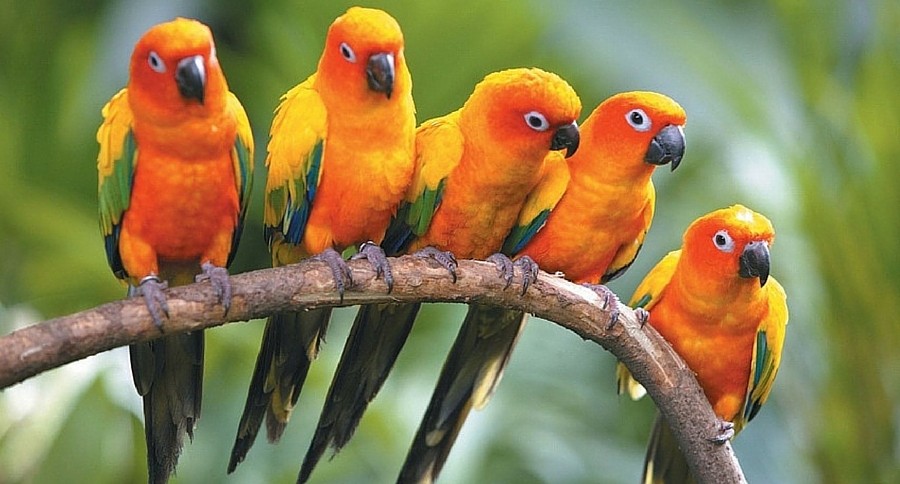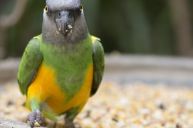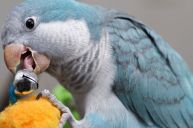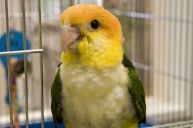If you're looking for a little bird with a big personality, you're going to love conures. These petite birds are highly social when raised around humans, and they'll be happy to chat with you throughout the day. Conures make a lively, energizing addition to your home.
If you're worried about the responsibility of taking care of your first bird, Conures can be an ideal choice. They're a relatively low-maintenance bird, and since they are pretty quiet, they're often suitable for apartments and other settings where other breeds of birds would annoy the neighbors. Read on to find out if the conure is right for you.
Conures: Little Birds, Big Personalities
Originating in southern Mexico, South America, and the Caribbean Islands, conures are a medium-sized breed of parrot. But don't let their small size fool you; conures are active birds that need lots of socialization and human interaction.
Although they are on the smaller side when it comes to parrot species, conures have big personalities. Known to be friendly and clownish, these birds love spending outside of their cage where they can be around their humans. When properly socialized, they form close bonds with everyone in their "flock." This flock often extends to anyone living under the same roof as them.
Teaching the Conure
While they love vocalizing, they do not have the biggest capacity for speech. On average, conures are able to learn between five and ten words. This doesn't mean they aren't smart, though. Conures are able to learn a wide variety of tricks, such as waving, turning around, and shaking hands. Their high intelligence also means that they need access to additional toys they can play with or they can become bored.
Conures for First-Time Bird Owners
Overall, conures make great pets for families with bird experience or those who are up to the challenge of a more high maintenance pet. For first-time bird owners, the green-cheeked conures are best due to their quieter level of noise and the fact that they are less likely to chew or gnaw. Aside from the green-cheeked conures, most conures are best suited to detached homes due to their loud vocalizations.
Care Requirements
Caring for these social birds requires research and conures can be prone to feather picking, which usually occurs because the birds are bored or neglected. And these birds (especially young birds) should be checked by an avian veterinarian regularly to ensure they're healthy and happy - and that their overall wellness is where it needs to be.
Conures need a wide variety of fresh food including fruits and vegetables. A prescription diet of high-quality pellets can be used to supplement the fruits you're giving this small parrot. In fact, pellets are the ideal diet.
Now let's talk about parrot cages. Your new family pet will need an appropriately sized bird cage. You can find these at Petsmart.com and it's important they are spacious enough to give your small parrot plenty of room to move around in and a play top where she can perch. This could be one of the most important tips! These birds have playful personalities and they need room to shine!
Conures can have a lifespan of anywhere between 20 and 40 years of age or older, depending on the breed.
Hover over the image for more information.




